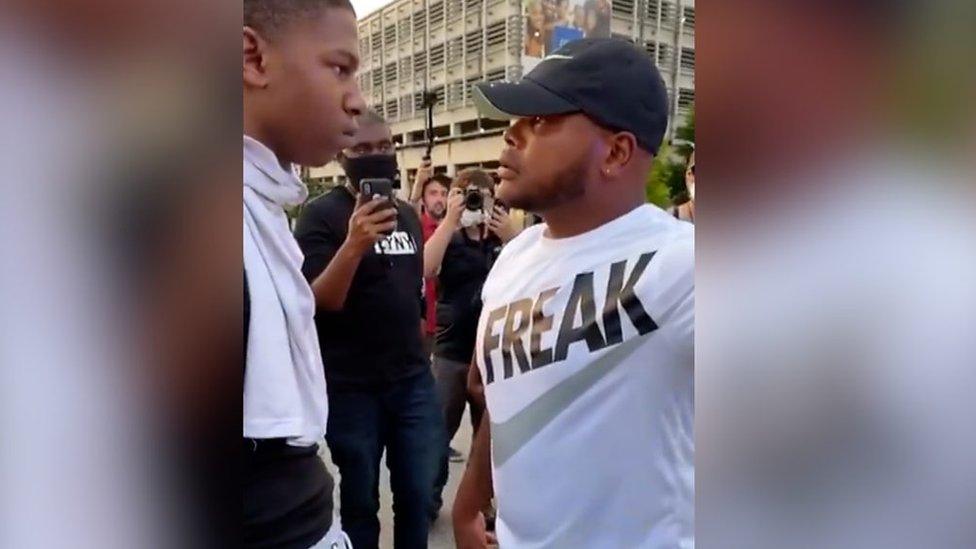George Floyd: Three generations of an African-American family on what needs to change
- Published
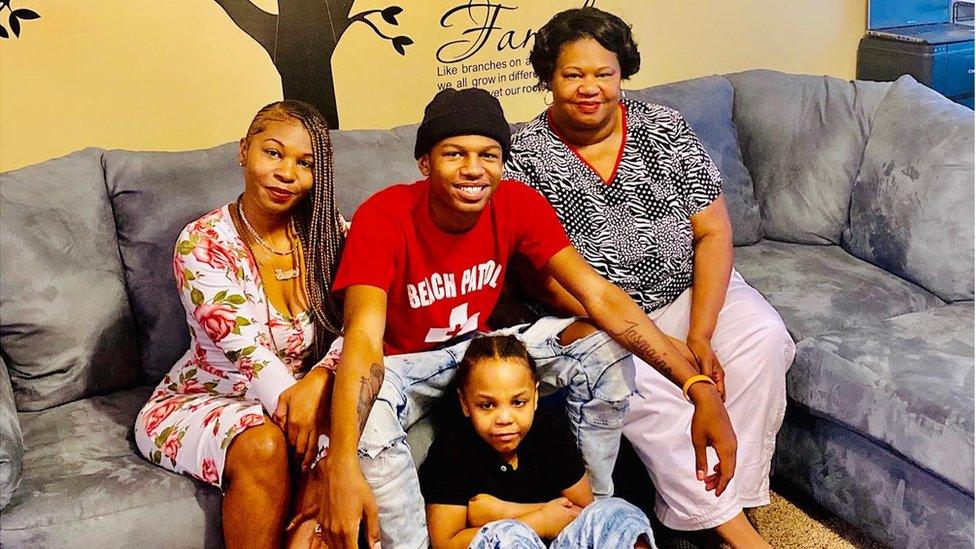
(From left to right) Jasmaine and Raymon Curry, Sherondia Morgan, with the family's youngest son Princeton Holmes
The death of George Floyd, an unarmed black man in police custody, has sparked over a thousand protests across the US. Here's what one African-American family has to say about movements past - and moving forward.
Video showing Floyd struggling to breathe as a white police officer knelt on his neck swiftly led to nationwide outrage and in the weeks since, there have been demonstrations in all 50 US states.
These protests form part of a long history of uprisings against racial injustice in America.
But what needs to be done differently now?
That was the question posed to 16-year-old Raymon Curry during a protest in Charlotte, North Carolina, in a video that went viral this month.
Activist explains plea for peaceful protests
In the clip, activist Curtis Hayes Jr, 31, pulls Raymon from the crowd and tells him that they need to "find a better way" to express their pain over the killings of African-Americans.
We asked Raymon, along with his mother, 33-year-old Jasmaine, and his grandmother, Sherondia, aged 58, to share what they believe the country needs to change in order to move forward.

'We need action'
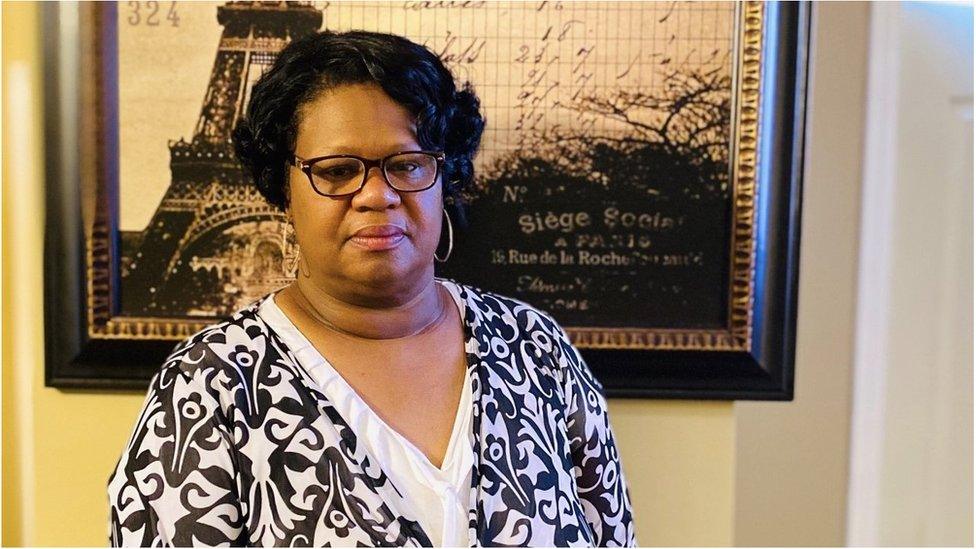
Sherondia was born in New York City in the early 1960s. While she's enraged by what's happening, she says she's proud of the diversity of people turning out to protest compared to when she was younger.
"I've seen not only black people but white people, different races of people protesting. And what really encouraged me was when I saw protests going on all over the world.
"I was very young when the civil rights movement began back in the 60s. My mother told me stories and I saw pictures. When I look back at the movement I say, 'How did they survive when water hoses were thrown at them, dogs sent on them?'"
The protests over the death of George Floyd have seen the tearing down of Confederate statues and monuments connected to slavery and colonialism.
But Sherondia thinks this isn't enough.
"Today we need more than just Confederate statues coming down. We need open dialogue, we need people coming together and breaking down barriers and socioeconomic injustices going on in this country. We don't just need a word, we need action."
She says what's kept her going through the years has been her faith.
"Racism has always existed. It's something that I think black people have learned to live with. But even though it's uncomfortable, we have found the strength. The strength of the church, the strength of believing that there is absolutely a God. So our strength came from that faith."

'We gave so many chances for this to be corrected'
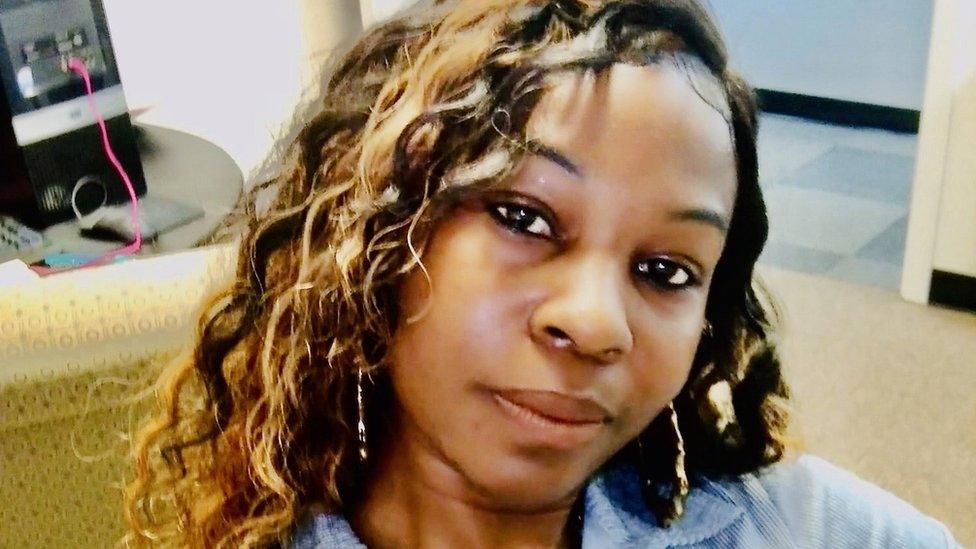
Sherondia's daughter, Jasmaine, was born in 1987. She says one of her most vivid memories is of watching the Million Man March, a gathering of African-American men in Washington DC in 1995.
"I remember black men coming together, and they were interrupted by officials. I was young and learning about Rodney King, things of that nature. I remember looking at Ebony Magazine and reading so early - when I was in first grade [aged six or seven] - about Emmett Till and seeing his picture.
"So the problem goes back to my time and even to my mom's time. My grandmother told me stories about going to black-only bathrooms. In my era, in the 80s, I didn't sit and watch Martin Luther King like my grandmother but I heard that same message. That message has now moved to a new generation.
"I'm fed up. Even if I'm peaceful and speak the truth, someone else is going to tell me, 'You weren't enslaved'. But my ancestors were. So actions speak louder than words, and if it takes burning down something, it's unfortunate but we gave so many chances for this to be corrected."
On the day that Raymon was filmed in the now-viral exchange, he didn't tell his mother that he was going out to protest.
"I gave him permission to go and play with his friend," Jasmaine recalls.
"So to find out the next day that he went to the protest, my main concern as a mother was for his safety. There was one point we were telling our kids to stay away from strangers, gangs, violent people, but it's reverted to me telling him to stay away from the police."

'Peace by any means necessary'
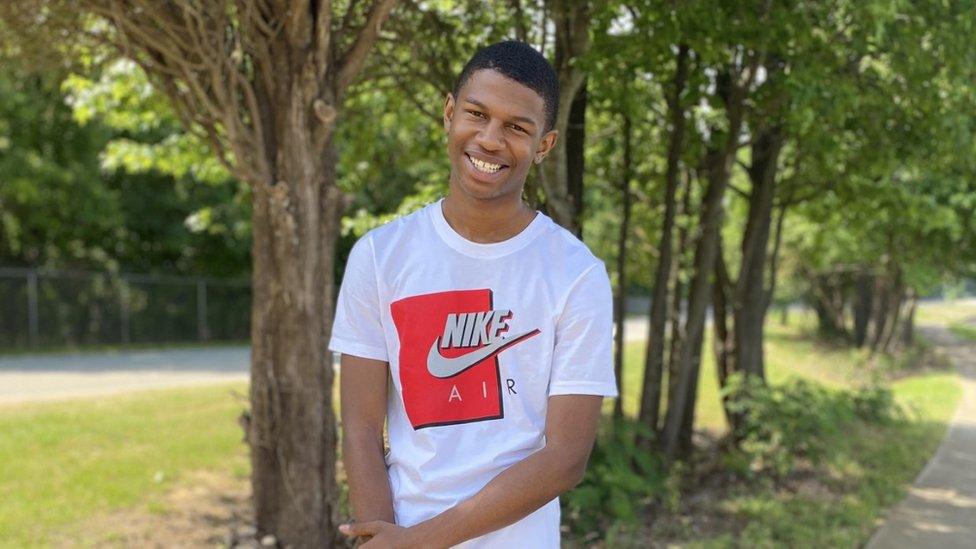
Raymon, one of two boys, has grown up listening to his mother and grandmother tell him about racial injustice, and remembers watching news of the deaths of black Americans.
"I see [previous protest movements] as something we've got to learn from," he says.
"We want to be equal, to all be heard and to have a voice. I know what my mom and grandma saw growing up and it's still continuing. Now it's my turn to be the leader of my generation."
So how does he think protests should change from previous generations?
"By this time, peace shouldn't be an option. We should get our voices heard and get this peace by any means necessary. How many times do we have to be peaceful before we get our justice? I'm trying every day to think of ways. It's something I shouldn't have to deal with at this age."
"I'm not a violent or hateful person, but tearing down statues is what's getting attention. Now we're finally having our voices heard. We were part of the slavery system and the statues represent that."

More on the George Floyd protests
WATCH: One family, two generations of protest
- Published3 June 2020
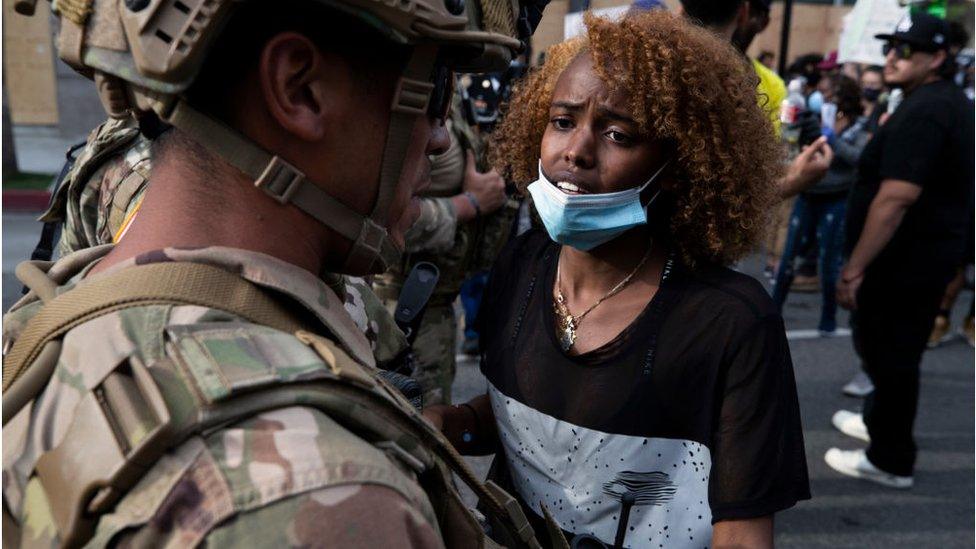
- Published24 May 2021
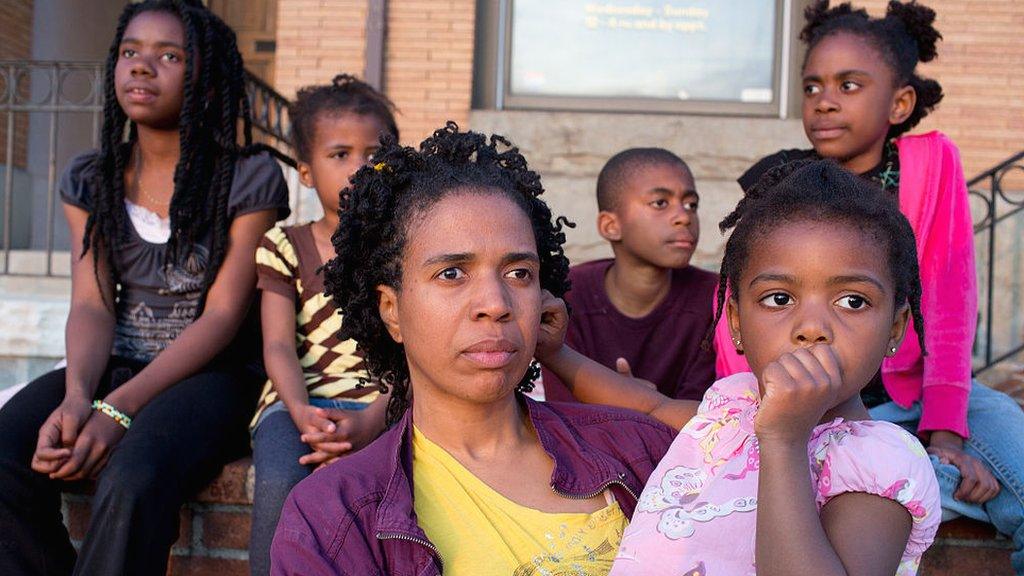
- Published15 June 2020
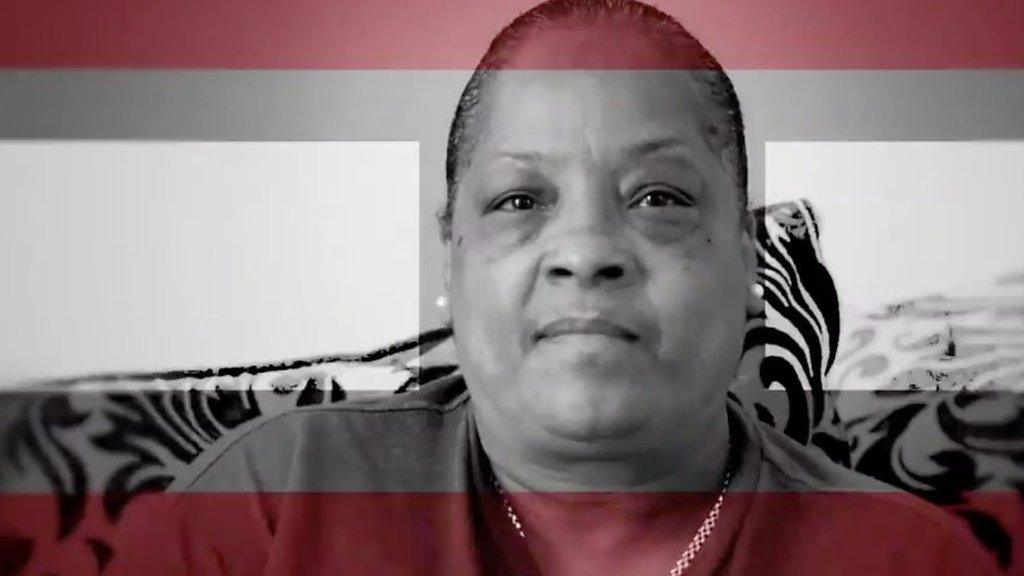
- Published4 June 2020
